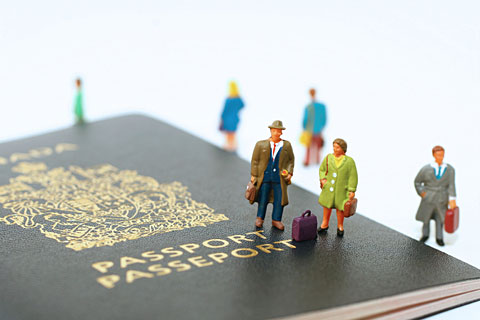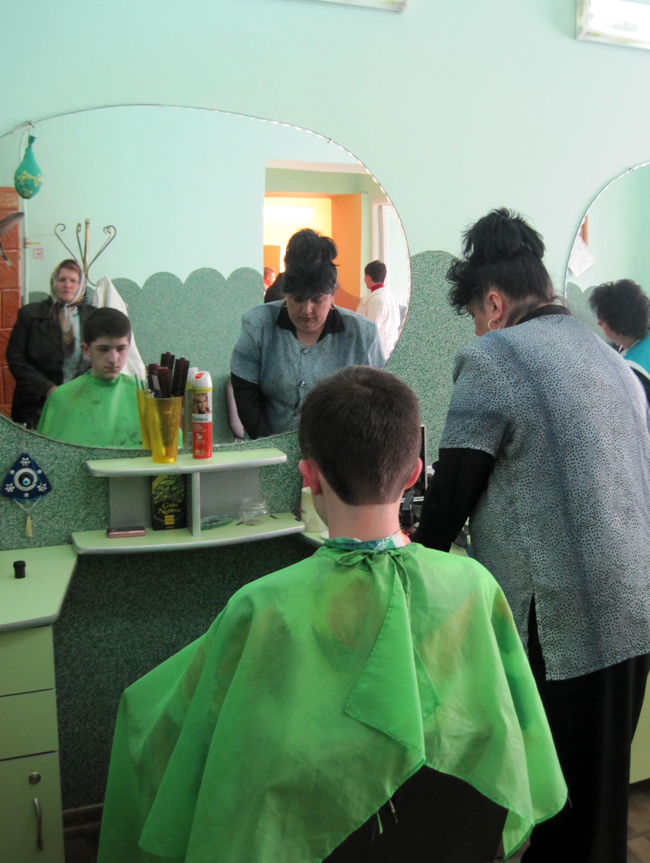
Do many Ukrainians who were able to move abroad and create a life there want to come back to Ukraine? What can make these people return? Is life in Western Europe or America really simpler, easier, or more pleasant? What is independence—in Europe, in Ukraine and Ukrainian style?
According to Radio BBC statistics, in 2005 75% of 8 million Ukrainian labour migrants living abroad stated they plan on returning to Ukraine. After the parliamentary elections in 2007, fewer than 30% of them expressed a desire to return to their homeland.
According to a recent study on the prognostic evaluation of the concept of circulatory migration (conducted by the Institute of Ethnology, the National Academy of Sciences of Ukraine, and Caritas Ukraine), it was found that over 80% of Ukrainian migrants return home. Close to 70% of migrants have family in Ukraine and 90% are making plans for their future in Ukraine—they are buying homes, and paying for their children’s higher education. Ukrainian migrants visit their homeland between 2 and 3 times a year.
Rostyslav Kis’, Manager of Migration Projects for Caritas Ukraine notes: “We shouldn’t idealize what motivates migrants that leave Ukraine. For over 6 years, Caritas Ukraine has been running projects which strive to repatriate and re-integrate Ukrainian labour migrants who voluntarily return home from the EU. Our work experience shows that most migrants are reluctant to return home if they haven’t accomplis hed what they set out to do abroad—save up money to buy a home, to cover their children’s studies, or for medical treatment. If they return before they have saved up the money they need it is because they are forced to do so by extreme circumstances, that is, health problems or job loss.”
hed what they set out to do abroad—save up money to buy a home, to cover their children’s studies, or for medical treatment. If they return before they have saved up the money they need it is because they are forced to do so by extreme circumstances, that is, health problems or job loss.”
Experts believe that improving and simplifying the process of returning Ukrainian migrants home can become a positive factor of their repatriation. In the spring of 2008 the ERSO project created an initiative to repatriate Ukrainian migrants; Caritas administered this project. The project created a Ukrainian solidarity network of 30 partner organization from 15 of Ukraine’s regions. The coordinating centre for this project was in L’viv.
This network provided social, informational, and psychological support, along with legal and material assistance to Ukrainian migrants who wanted to return home. In the first year alone, this network helped to bring 163 migrants home, and provided re-integration assistance to another 25. This project ended at the beginning of 2010.
Since the beginning of 2010, Caritas Ukraine has been administering the STAVR (Strengthening Tailor-made Assisted Voluntary Return) project. The project’s goal is to help the successfully re-integrate migrants who have returned from Belgium by providing them with qualified assistance. The STAVR project assists vulnerable groups of migrants: children to the age of 18 (helping them get an education or attend training), pregnant women (covering medical expenses and child expenses), victims of human trafficking (specialized assistance), and those who need help covering medical expenses. Others who can expect assistance from this project are those who are returning to Ukraine to open a private business or those who need help finding work.
One of the project’s success stories is Ruslana (her name has been changed to protect her privacy) who happily shared her experiences and life story which includes 10 years working in Belgium:  “11 years ago my husband’s factory reduced their staff and he was left unemployed. As for many Ukrainians, his only option was to go abroad to find work. Despite having two degrees, my husband had to work for 10 years as a labourer on construction sites in Brussels.
“11 years ago my husband’s factory reduced their staff and he was left unemployed. As for many Ukrainians, his only option was to go abroad to find work. Despite having two degrees, my husband had to work for 10 years as a labourer on construction sites in Brussels.
At that time my income was very poor and my closest family members died; I decided I had to make sure I didn’t lose my husband as well. I joined him in Belgium within a year.
Life abroad is very difficult at first. I couldn’t find work for 7 months; I finally got a job by paying Polish intermediaries. An elderly woman hired me to clean her house. The pay was pretty low, but I couldn’t complain as I was working illegally. Somehow we made ends meet. My hair dressing skills came in handy [she is a profession hair dresser]; I hung out advertisements in stores where migrants shopped and got some clients that would come to my house for their haircuts.”
Ruslana tells how homesick she was. The language barrier and the fear of being caught and punished for living and working illegally in Belgium made life difficult and stressful. Several times Ruslana and her husband applied for refugee status but were refused.
When comparing Ukrainians and Belgians, Ruslana says that Ukrainians are more welcoming and open. She says that Belgians just couldn’t understand why Ukrainians left Ukraine in such large numbers searching for work. They asked banal questions about communications, the availability of food, and access to education and then asked why we run away from home if everything is available? 
“I wanted to return to Ukraine for a long time, practically from the moment I got to Belgium. When I was notified that a hair dresser’s position had opened up in my native city I thought that God must have orchestrated this opportunity. I needed to choose: return and start a new life in Ukraine or stay and pass on this rare job opportunity in my homeland. After discussing the situation at length with my husband I decided to return to Ukraine.
This decision created another problem. How could I leave Belgium and not be forbidden from travelling abroad at a later date? It seemed impossible. While contemplating this issue I heard about Caritas and their project that helped migrants living in Belgium return home. I went to their office in Brussels and got the assistance and support I needed. They treated me with understanding and sensitivity. I filled out forms with some basic personal information: my Ukrainian address (they checked it against the address at which I am legally registered), and the years I worked in Belgium,” explained the former labour migrant.
Ruslana now lives in her native Drohobych, in the L’viv region and works as a hair dresser. She has re-adjusted to the Ukrainian rhythm of life, with many problems and joys, worries and moments that warm the heart. She has already privatized her spot at the beauty salon and legalized her status as a private entrepreneur.
She has no plans to travel abroad. She is waiting for her husband to legalize his residency in Belgium so that he can return home too. She says that only Ukraine can be her home; everyplace else—however charming or annoying, profitable or unprofitable—is just not home.
“I have finally achieved personal independence; I have an identity as a citizen and an individual! I wish this or every Ukrainian. If we have freedom and self-respect then we will have a decent country,” Ruslana says as we finish our discussion.
Tags:

